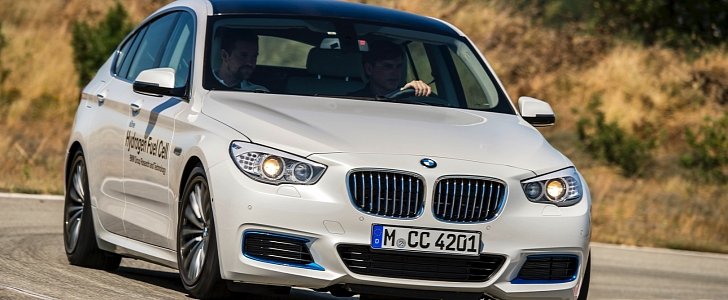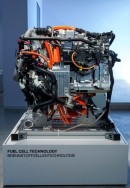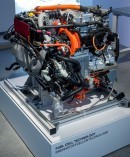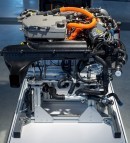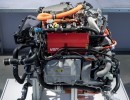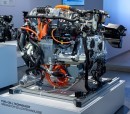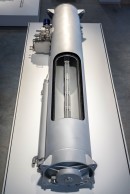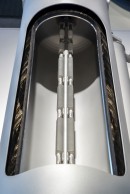The biggest problem electric cars have these days is the long time it takes to recharge them. It used to be range anxiety but with developments in the field, cars with over 400 km (250 miles) of range are now available and they are quite popular as well.
However, bigger batteries translate into even longer recharging times and that’s something that won’t be solved too soon if we keep using the same recipe. Fuel-cell vehicles represent an alternative to this issue, but they are still in their infancy.
BMW is one of the manufacturers that is trying to bring out a model using this technology. Their partnership with Toyota is very well known and today we received the first official confirmation of what the two car makers are working on: FCVs.
The first prototype wearing BMW’s logo on the boot was presented at Miramas France. After unveiling the Hydrogen 7 model in 2005, the Germans kept silent about their plans up until today.
Now we can take a look at a 5 Series GT that carries all the tech needed to use hydrogen as fuel for getting around. The ‘fuel’ is stored in a tank located between the axles together with batteries that store the energy needed by the electric motors.
The difference compared to electric vehicles is that the batteries can be considerably smaller as they are used only for short-term energy storage. A 1 kW battery should be enough for a car even the size of the BMW 5 Series GT.
Furthermore, refueling takes 5 minutes, just like for a conventional car, and involves just getting more hydrogen into the tank. The range of such a model is also impressive, possibly reaching 300 miles (500 km) or even more, depending on the size of the tank.
The model we’re looking at here uses an electric motor good for 245 HP, a true alternative to the layouts from BMW i cars. The hydrogen is stored in an industry standard 700 bar CGH2 vessel with cryogenic pressure vessel technology that offers a range of 480 km.
Last but not least we should mention that the fuel cells, housing and ancillary systems are the first results of the collaboration of BMW with the Toyota Motor Corporation on Fuel Cell Electric Vehicle technology.
The aim of this collaboration is to bring out an FCEV by 2020 but also improve the infrastructure that is deficient at the moment. With everyone focused on bringing out more chargers for EVs, it’s going to be interesting watching companies like BMW and Toyota lobbying for yet another type of station, this time one using hydrogen.
BMW is one of the manufacturers that is trying to bring out a model using this technology. Their partnership with Toyota is very well known and today we received the first official confirmation of what the two car makers are working on: FCVs.
The first prototype wearing BMW’s logo on the boot was presented at Miramas France. After unveiling the Hydrogen 7 model in 2005, the Germans kept silent about their plans up until today.
Now we can take a look at a 5 Series GT that carries all the tech needed to use hydrogen as fuel for getting around. The ‘fuel’ is stored in a tank located between the axles together with batteries that store the energy needed by the electric motors.
The difference compared to electric vehicles is that the batteries can be considerably smaller as they are used only for short-term energy storage. A 1 kW battery should be enough for a car even the size of the BMW 5 Series GT.
Furthermore, refueling takes 5 minutes, just like for a conventional car, and involves just getting more hydrogen into the tank. The range of such a model is also impressive, possibly reaching 300 miles (500 km) or even more, depending on the size of the tank.
The model we’re looking at here uses an electric motor good for 245 HP, a true alternative to the layouts from BMW i cars. The hydrogen is stored in an industry standard 700 bar CGH2 vessel with cryogenic pressure vessel technology that offers a range of 480 km.
Last but not least we should mention that the fuel cells, housing and ancillary systems are the first results of the collaboration of BMW with the Toyota Motor Corporation on Fuel Cell Electric Vehicle technology.
The aim of this collaboration is to bring out an FCEV by 2020 but also improve the infrastructure that is deficient at the moment. With everyone focused on bringing out more chargers for EVs, it’s going to be interesting watching companies like BMW and Toyota lobbying for yet another type of station, this time one using hydrogen.
